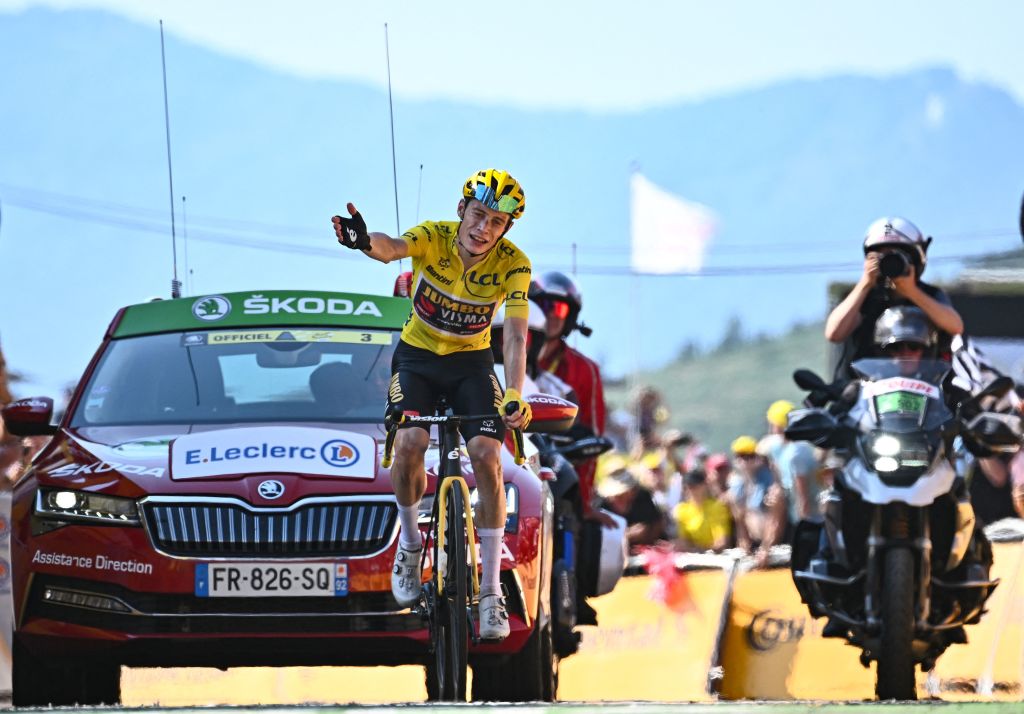Did AI give Jonas Vingegaard the edge in last year's Tour de France?
Jumbo-Visma worked with an AI researcher to create the perfect rider diet – seems to have worked for the Dane


The latest race content, interviews, features, reviews and expert buying guides, direct to your inbox!
You are now subscribed
Your newsletter sign-up was successful
Jumbo-Visma has teamed up with an AI researcher in a move that might just have given Jonas Vingegaard the edge in last year's Tour de France.
Kristian van Kuijk and colleagues from Maastricht University employed machine learning and mathematical modelling to help the WorldTour team plan its riders' diets, reports New Scientist.
It's impossible to say for sure, but when Tadej Pogačar had his jour sans on the Col du Granon last July, Vingegaard's machine-prescribed dietary intake may have proved the difference that allowed him to go ahead and take a yellow jersey he would never concede.
“The way they were predicting the energy intake was… well, not very efficient,” said Van Kuijk, who is studying for an MSc in data science for decision making at the Dutch university. “How they computed it was only based on experience. There wasn’t a real reasoning behind how it was done. You have to have it spot on – any improvement helps, of course, to get the win.”
The researchers based their calculations on a slew of data from previous races, including the riders' biological and power stats, the details of race parcours and weather conditions.
Machine learning was then used to create a statistical model from these which could then predict future energy requirements for any future race.
In an experiment the researchers pitted the model against the team coaches, with both being asked to estimate rider calorie requirements from stages in the Tour de France and Giro d'Italia from 2019. A score ranging from zero to one was then produced, with higher scores being more accurate – the coaches averaged 0.55, while the machine-learned model averaged 0.82.
The latest race content, interviews, features, reviews and expert buying guides, direct to your inbox!
While Jumbo-Visma may have been at the vanguard of this futuristic strategy, it's not one the Dutch outfit will be allowed to keep to itself.
“We know that… other teams have picked up on using AI in cycling,” says van Kuijk. “Now it’s become the big hype in the cycling world.”
Current technology does not however, confer quite the same benefits to your average leisure cyclist as it does the WorldTour pros, cautions van Kuijk, as they simply don't generate the amount of data the pros do.
“You can simplify it, but then the accuracy drops," he says.
After cutting his teeth on local and national newspapers, James began at Cycling Weekly as a sub-editor in 2000 when the current office was literally all fields.
Eventually becoming chief sub-editor, in 2016 he switched to the job of full-time writer, and covers news, racing and features.
He has worked at a variety of races, from the Classics to the Giro d'Italia – and this year will be his seventh Tour de France.
A lifelong cyclist and cycling fan, James's racing days (and most of his fitness) are now behind him. But he still rides regularly, both on the road and on the gravelly stuff.
